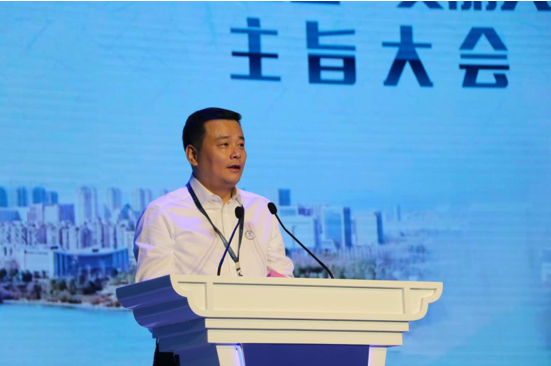The Chinese firm has similar agreements with 50 of the country's hospitals to apply its take on the internet hospital model

The internet hospitals will allow patients access to online health services across China
Ping An Good Doctor, a digital subsidiary of Ping An Health, will launch an online platform to enable medical diagnoses and prescription sharing in China’s Quzhou City.
Ping An Good Doctor has pledged to create the Quzhou Ping An Internet Hospital alongside the city’s Municipal Health Commission through the signing of a strategic cooperation agreement.
The news comes after the Chinese government indicated the National Healthcare Security Administration will release a policy document in September to address the fees and charges of internet diagnosis and treatment, as well as how these tie in with medical insurance payment.
Tang Feifan, Quzhou City mayor and deputy secretary of the municipal party committee, threw his support behind the cooperation agreement, saying healthcare is the ultimate livelihood issue and the need to focus on the extension of the “one visit at most” reform to the public service sector.

He said: “Quzhou will cherish this opportunity of cooperation and make good use of Ping An Good Doctor’s powerful medical resources and internet technology to overcome geographical constraints and integrate online and offline resources, so as to mitigate the lack of medical resources within the city and provide better medical services to the public.”
Tang emphasised that in order to open a new path of “demonstration-for-application and market-for-industry”, an open and inclusive approach must be adopted, enabling all involved to learn through trial and error.
China’s higher-class hospitals are under strain from outpatients
China has a three-tier healthcare system, with primary healthcare facilities giving affordable first-contact care, and secondary and tertiary care facilities providing specialist referral services.
Distribution of healthcare capacity among China’s population of 1.4 billion is uneven, spread across a country with those living in rural areas unable to access the higher-class capabilities found in hospitals of urban cities without travelling.
According to industry estimates, these ‘Triple-A’ hospitals comprise 8% of the approximately 31,056 hospitals in China, but in 2016 handled half of all outpatient traffic.
The Chinese government has been pushing for more development of online consultation services and telemedicine platforms since 2015, when they were proposed by former Prime Minister Lei Keqiang in his internet plus healthcare plan.
Since then, the country has seen the creation of several ‘internet hospitals’ that integrate virtual consultations with physical examinations.
The government has played an enabling role in this process by setting out a regulatory framework and provided guidance on the safe provision of care in an internet hospital model.
How will the Quzhou Ping An Internet Hospital work?
Ping An Good Doctor already has cooperation agreements with 50 hospitals across China to apply its take on the internet hospital model, and the new agreement with Quzhou City will operate in the same way.
The model will operate using to a cloud-based hospital management system that splits patient care into three platforms for online diagnosis, prescription sharing and health management.
Patients will be able to book appointments online, as well as process payment, drug delivery, follow-up treatment after discharge and chronic disease management.
In addition, internet hospitals will serve as a data integration and sharing platform to allow information exchange and real-time sharing.
Quzhou City’s Municipal Health Committee said it will provide proactive “Regulatory plus Servicing” support to Ping An Good Doctor and the municipal healthcare institutions for hospital building in accordance with the needs for the construction of Quzhou Ping An Internet Hospital.
